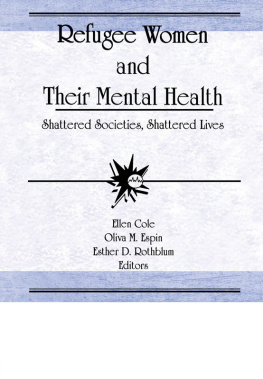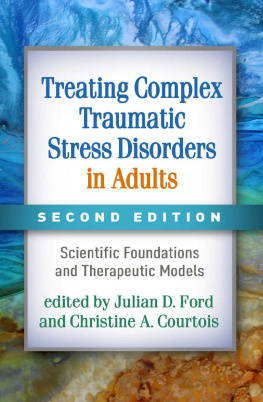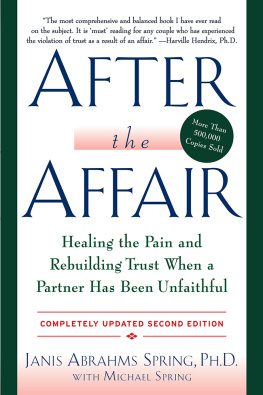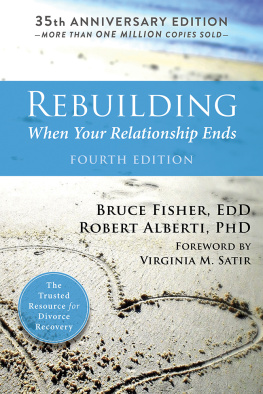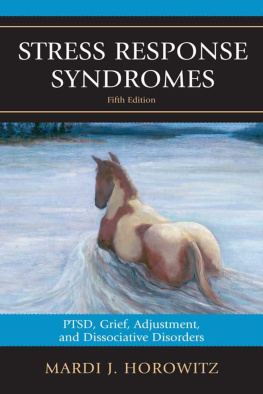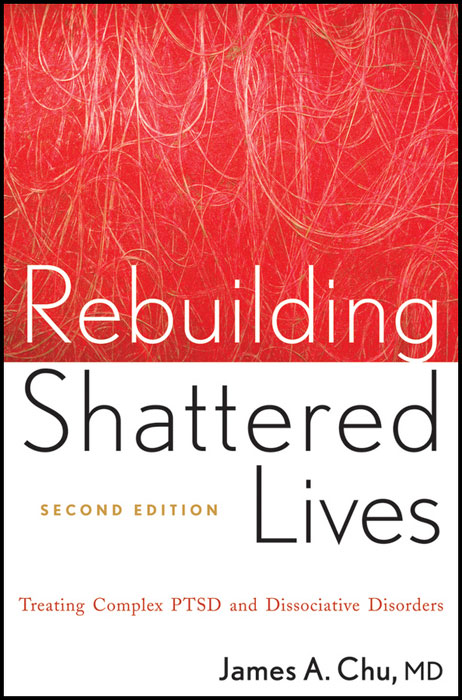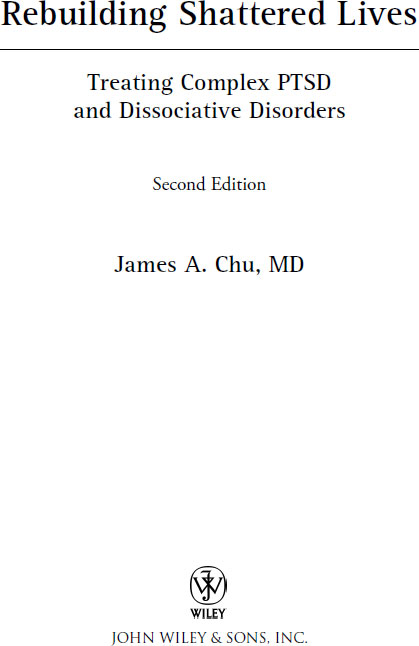This book is printed on acid-free paper. 
Copyright 2011 by John Wiley & Sons, Inc. All rights reserved.
Published by John Wiley & Sons, Inc., Hoboken, New Jersey.
Published simultaneously in Canada.
No part of this publication may be reproduced, stored in a retrieval system, or transmitted in any form or by any means, electronic, mechanical, photocopying, recording, scanning, or otherwise, except as permitted under Section 107 or 108 of the 1976 United States Copyright Act, without either the prior written permission of the Publisher, or authorization through payment of the appropriate per-copy fee to the Copyright Clearance Center, Inc., 222 Rosewood Drive, Danvers, MA 01923, (978) 750-8400, fax (978) 646-8600, or on the web at www.copyright.com . Requests to the Publisher for permission should be addressed to the Permissions Department, John Wiley & Sons, Inc., 111 River Street, Hoboken, NJ 07030, (201) 748-6011, fax (201) 748-6008.
Limit of Liability/Disclaimer of Warranty: While the publisher and author have used their best efforts in preparing this book, they make no representations or warranties with respect to the accuracy or completeness of the contents of this book and specifically disclaim any implied warranties of merchantability or fitness for a particular purpose. No warranty may be created or extended by sales representatives or written sales materials. The advice and strategies contained herein may not be suitable for your situation. You should consult with a professional where appropriate. Neither the publisher nor author shall be liable for any loss of profit or any other commercial damages, including but not limited to special, incidental, consequential, or other damages.
This publication is designed to provide accurate and authoritative information in regard to the subject matter covered. It is sold with the understanding that the publisher is not engaged in rendering professional services. If legal, accounting, medical, psychological or any other expert assistance is required, the services of a competent professional person should be sought.
Designations used by companies to distinguish their products are often claimed as trademarks. In all instances where John Wiley & Sons, Inc. is aware of a claim, the product names appear in initial capital or all capital letters. Readers, however, should contact the appropriate companies for more complete information regarding trademarks and registration.
For general information on our other products and services please contact our Customer Care Department within the U.S. at (800) 762-2974, outside the United States at (317) 572-3993 or fax (317) 572-4002.
Wiley also publishes its books in a variety of electronic formats. Some content that appears in print may not be available in electronic books. For more information about Wiley products, visit our website at www.wiley.com .
Library of Congress Cataloging-in-Publication Data:
Chu, James A.
Rebuilding shattered lives : treating complex PTSD and dissociative disorders / James A. Chu.2nd ed.
p. ; cm.
Includes bibliographical references and index.
ISBN 978-0-470-76874-7 (pbk. : alk. paper)
ISBN 978-1-118-01505-6 (ebk)
ISBN 978-1-118-01506-3 (ebk)
ISBN 978-1-118-01504-9 (ebk)
1. Adult child abuse victimsRehabilitation. 2. Post-traumatic stress disorderTreatment. 3. Dissociative disordersTreatment. I. Title.
[DNLM: 1. Stress Disorders, Post-Traumatictherapy. 2. Adult Survivors of Child Abusepsychology.
3. Dissociative Disorderstherapy. WM 172]
RC569.5.C55C48 2011
616.858223906dc22
2010037951
Dedication
This book is dedicated to the generations of staff and patients of the Trauma and Dissociative Disorders Program at McLean Hospital who have taught and inspired me, and to my family, friends, and colleagues who have provided me the support and love that have allowed me to grow, learn, and achieve at least a modicum of wisdom over the years.
Foreword
When I was asked to update the foreword I wrote in 1998 for Rebuilding Shattered Lives , I accepted with enthusiasm, eager to learn what Dr. James Chu had revised in his now-classic book on the treatment of complex PTSD and dissociative disorders. This revision does not disappoint and, in fact, builds on the first edition and adds to it the insights gained and information published since the original came out. As before, this revision provides clinical wisdom and clarity of discussion regarding the treatment of this challenging population of patients. It also provides support and sustenance to the clinician reader (whether novice or seasoned) facing the challenges these cases present and the dilemmas they often spawn. Dr. Chus approach is grounded in theory and extensive experience and is thoughtful and thought-provoking but anxiety-diminishing. The guidance provided makes the process more transparent and hence more understandable to the treating clinician.
As in the first edition, Dr. Chu calls upon his considerable inpatient and outpatient experience with these patients and his familiarity with the pertinent literature to elucidate the treatment model and guidelines presented in this book. The model helps the clinician steer a reasonable course in providing treatment to traumatized and dissociative patients, a treatment that does not overwhelm the patient or the therapist and that manages the various risks associated with the treatment. It is a research and training-based model, calling for caution and reason regarding all strategies and techniques, those having to do with memory recovery in particular. It is also a stage-oriented treatment that, using the mnemonic SAFER for the work of the first stage, underscores self-care and symptom control, acknowledgment, functioning, expression, and relationship issues as essential preliminary tasks to be undertaken long before any directed focus is placed on abuse issues per se. Dr. Chu discusses the rationale behind the reworking and abreaction of traumatic material and emphasizes the importance of addressing and resolving the core abuse-related issues and beliefs that so often plague adult survivors. He shows how for the truly traumatized this treatment is far from a search for the missing memories; instead, it is a process of life reconstruction and enhancement.
Dr. Chu is very effective in conveying the challenges posed by these patients (especially early in the treatment process) and cogently discusses ways to manage them. I find especially insightful and useful his discussions on the shift of therapeutic responsibility and chronic disempowerment, empathic confrontation, and relational issues and the therapeutic dance, as well as his sound advice regarding the treatment of dissociative identity disorder. Clinical examples provide realistic, graphic, and compelling illustration of the points under discussion and help familiarize and desensitize the reader to their appearance and management.
The books additions are all in keeping with the major developments in the field of traumatic stress (in general and as pertains to complex developmental and dissociative posttraumatic stress disorders) and in the treatment advances that have occurred in the field since the books original publication. Included are discussions of the quality of the childs earliest attachment relationships and its impact on overall development but especially the childs sense of self and self-esteem; the impact of insecure or disorganized attachment on the childs vulnerability to various forms of victimization, within and outside of the family; the relationship between disorganized attachment and dissociation, and the development of dissociative disorders; differences between normal event memory and memory for trauma including attention to their general accessibility and accuracy, whether they were ongoing or returned in delayed fashion as recovered memories; the application of evidence-based treatment strategies where feasible; clinical consensus about a progression of stages of treatment within which the therapist applies techniques hierarchically; a continued specialized focus on dissociation and dissociative process in many of these patients; and an update of information regarding the management of special issues such as patient self-care and self-injury/suicidality, strategies for the containment of posttraumatic and dissociative symptoms, chronic disempowerment and the impossible patient, boundary management, acute care requiring the use of hospitalization, and psychopharmacology. As before, Dr. Chu discusses a treatment that is at once relational, relying on the therapists ability and willingness to be accessible to and active in interaction with the patient, and rational, requiring the establishment of boundaries and limitations and ongoing attention to their maintenance and to the patients improvement. The therapist is encouraged to be mindful of self and of the client and to use the interaction as both a source of information about the client and his or her history and grist for the mill.



